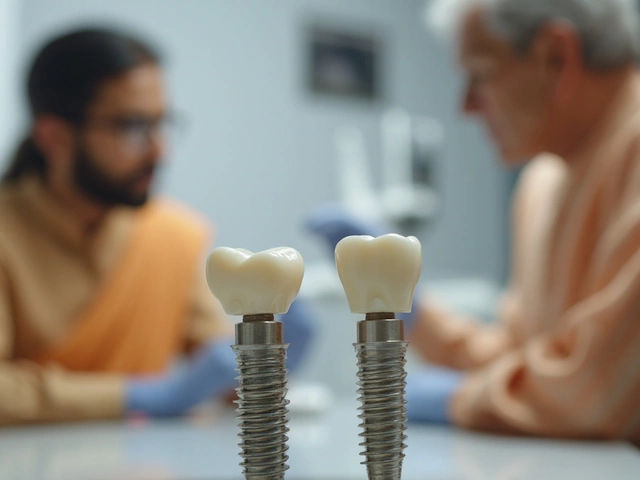Wondering if open-heart surgery still involves breaking ribs? Explore the fascinating advances in heart surgery techniques that have rendered many traditional practices obsolete. Discover the modern alternatives now available, the risks involved, and what to expect during recovery. An essential read for anyone curious about cutting-edge medical procedures and heart health.
Read MoreOpen‑Heart Surgery: A Straight‑Talk Guide
If you or a loved one is headed for open‑heart surgery, the words can feel overwhelming. This guide cuts through the jargon and tells you exactly what happens before, during, and after the operation, so you can feel more in control.
What "open‑heart" really means
Open‑heart surgery is any procedure where the chest is opened, the heart is stopped, and a machine takes over its pumping function. Surgeons do this to fix blocked arteries, replace valves, repair defects, or treat other serious heart problems. It’s a major step, but modern hospitals in India have refined the process to make it as safe as possible.
Before the knife: prepping for success
First, you’ll have a series of tests – blood work, ECG, chest X‑ray, and often a CT scan – to map out the exact issue. Doctors will also review any medicines you take, especially blood thinners, and may ask you to stop them a few days ahead. Expect a meeting with an anesthesiologist who will explain the breathing tube, pain control options, and what to expect waking up.
Nutrition matters, too. Most surgeons ask you to avoid solid food after midnight the night before surgery. Some hospitals encourage a light protein‑rich dinner the evening before, followed by clear liquids only on the day of the operation.
In the operating room: the day of surgery
When you arrive, a team will hook you up to monitors that track heart rate, blood pressure, and oxygen levels. After a short wait, the anesthesiologist will put you to sleep and place a breathing tube. The surgeon makes an incision down the center of your breastbone (sternum) and spreads it open with a special hook.
The heart‑lung machine takes over, letting the surgeon work on a still heart. Depending on your condition, they may clear plaque, replace a valve, or patch a hole. Most open‑heart surgeries last between three and six hours, but the total time you spend in the OR can be longer because of preparation and cleanup.
Hospital stay: How long and what to expect
Typical length of stay after open‑heart surgery ranges from five to eight days. The first 24‑48 hours are the hardest – you’ll be on a ventilator, tubes will be in place, and you’ll feel groggy from the anesthesia. Nurses will turn you gently, help you breathe deeply, and start light walking as soon as you’re able.
Pain management is a top priority. Most hospitals use a mix of IV pain meds, a low‑dose epidural, or patient‑controlled analgesia (press a button for a dose). By day three, many patients switch to oral pain pills and begin gentle chest‑physiotherapy to clear fluids and keep lungs healthy.
Recovery at home: The first month
After discharge, you’ll have a schedule of follow‑up appointments – usually one week, then one month, then three months. In the first two weeks, limit heavy lifting (no more than 5 kg) and avoid strenuous activity. Small walks around the house and short trips outdoors are ideal.
Watch for red‑flag signs: fever above 100.4°F, worsening chest pain, shortness of breath, or swelling at the incision site. If any of these appear, call your surgeon right away.
Nutrition helps repair. Aim for lean proteins (fish, beans, tofu), plenty of fruits and vegetables, and limit salt to keep blood pressure stable. Staying hydrated also supports healing.
Getting back to life
Most people feel back to normal activities by three to six months, though full strength can take up to a year. Cardiac rehab programs are a great way to rebuild stamina under professional supervision. They combine supervised exercise, education, and counseling to keep you heart‑healthy long term.
Remember, every recovery is personal. Some days will feel easy, others tougher. Keep a journal of your progress, ask questions at each appointment, and lean on family for support. With the right mindset and practical steps, you can move from the operating table to a healthier, fuller life.
Open-heart surgery isn't the end of the road but the start of a new chapter in life. Although it's a major procedure, many patients return to their normal lives and even thrive post-surgery. With advancements in medical techniques, plus lifestyle changes and proper follow-up care, patients can look forward to a healthy and fulfilling life. Recovery involves commitment, but it opens up opportunities for better heart health. This article explores the reality of living a long and quality life after going under the knife.
Read More





